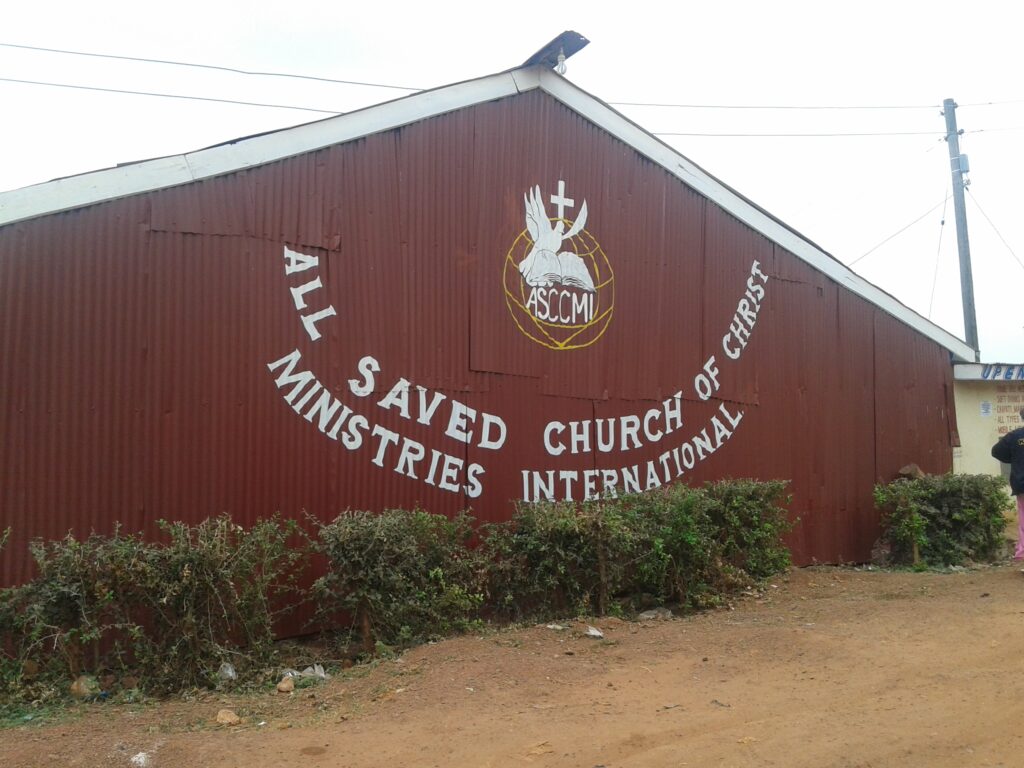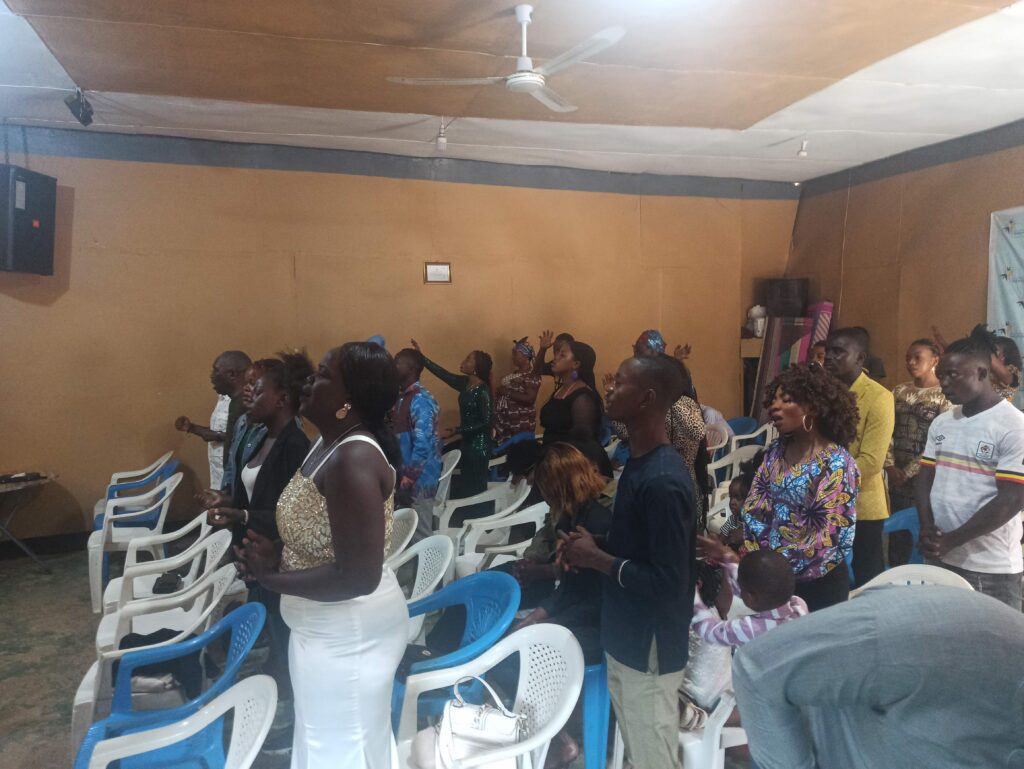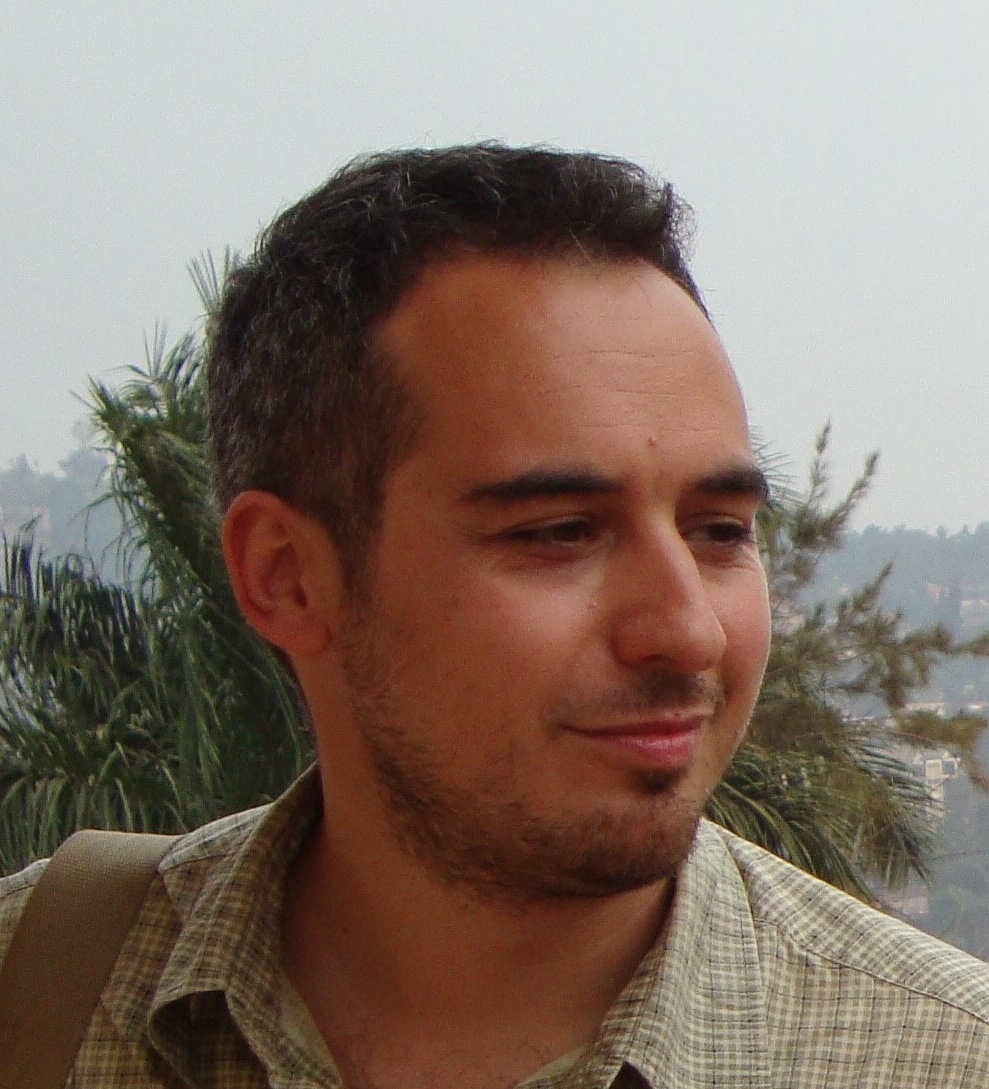
God has a plan for you; never forget this truth: God has a plan for you. Even if you are a refugee and you can’t see where your future will be, God has a plan for you; even if you are suffering here in Kampala, God has a plan for you; even if you have been here in Uganda for 5 years, or for 10 years, don’t forget, God has a plan for you. This is not something you can know in advance, you just have to put faith on him, because he has a plan for you.
This excerpt from a sermon delivered by a Pentecostal pastor echoes a commonly heard theme one hears in the many Congolese Pentecostal churches around Kampala, the capital city of Uganda: never lose faith in God and his plan, mysterious to humans, but clear in his mind. According to this narrative, the suffering of today and of the past should be interpreted as part of a divine plan that is beyond humans’ comprehension; there is nothing one can do but trust in God, knowing that sooner or later this plan will be accomplished. This theme projects into the future a resolution to the current suffering one faces, maintaining expectations beyond the situation experienced in the present. Briefly, it creates a hope for the future in a situation of extreme existential and legal uncertainty, as is the case for the majority of the more than forty thousand Congolese refugees currently living in Kampala (out of almost half a million who live in Uganda as a whole). They arrived in Uganda in different periods of time through the last three decades, fleeing the conflicts and protracted violence in the Kivu region (Eastern Congo). Many of them live in the settlements in the West and South-West of Uganda. Yet, an increasing number choose to leave the settlements and move to urban centers, where they aim to find better opportunities in terms of education, work, and physical safety.
The reference to trust in a divine plan is identified as a coping strategy by refugees, who listed it as the main mediator of the significant stress that they face in light of their economic and social insecurity and isolation. In conducting my own research in Kampala, I have seen it also operate as a tool to counter the chaotic experience of refugee life, the sense of anxiety and despair generated by the protracted refugee status, and the difficult living conditions of urban refugees. Becoming part of a congregation is also seen as part of this divine plan, as is meeting people in church who provide financial support, help rebuild social networks, and aid refugees in confronting the many other challenges that they face. In short, talking about God’s plan helps Congolese refugees find an order in life, and to project onto a different dimension, that of the divine, their expectations, which are often unachievable in the present.
Another narrative of hope frequently adopted in the Congolese churches in Kampala is that of the biblical story of the people of Israel. The long transit through Uganda (many Congolese have now lived in the country for ten or more years) is symbolically likened to the crossing of the Sinai desert narrated in the book of Exodus, with the prospect of reaching—albeit after a long period of suffering—the promised land, identified as the place of resettlement. Hence, on the one hand these refugees experience the anguish that results from living in a prolonged suspension from living a full life. On the other hand, there is hope, which in Christian theology is the expectation that something that is already there (in this case, a solution to the present condition) will be fulfilled, not that something which may not be real or possible will come to pass. This religious affect of hope seems to be particularly active in the case of the refugees I worked with, because it stands in contrast to the realization that the three “durable solutions” (repatriation, local integration, resettlement) proposed by secular international bodies are ineffective; as I will emphasize below, it is against this ineffectiveness of secular narratives that the Congolese refugees in Kampala have developed the idea of being exposed to a fourth solution, that of a “silent death” in the refuge. In this context, religious institutions maintain an important alternative welfare function too, providing shelter and material aid, as well as spiritual support and opportunities to socialize and share painful experiences in DRC Congo and Uganda itself. Moreover, Christian narratives of suffering and redemption help Congolese refugees in Kampala to make their present experience of suffering, marginality, and displacement more understandable and therefore also somewhat more tolerable. Religious language is crucial in the way Congolese refugees describe their life in Kampala and make sense of it. In light of the fact that states of insecurity and fear mark their everyday reality, they translate these realities into a different affective realm, one in which faith in God and in his plans provides room for narratives of hope.

However, as the time living in refuge becomes more and more protracted, this hope begins to give way to disillusionment, especially among the older generations of refugees and those who have been in Uganda for many years. I started conducting research with the Congolese in Kampala in 2013. At that time, resettlement was an extremely popular discourse and a concrete hope for the future for many. This is because a return to Congo was (and continues to be) an unrealistic (and often unwanted) prospect. In the case of Congolese refugees, Congo is often conceived with a nostalgic feeling of a “lost home,” a place to which it is not possible to return. Thus, the idea of Congo as a “nation” to be supported and to which to return one day is not widespread among Congolese in Kampala, nor it is “exile nationalism”; the only well-known case of nationalism in the Congolese diaspora is the one of “Les Combattants”, a network of intellectuals who live in Europe and North-America and who are critical towards the Congolese state. However, most of my interlocutors in Uganda didn’t even know about this group, or had just heard about it but considered it something far from their experience.
The link to Congo is thus mainly an affective one, most of them declare they are “proudly Congolese”; yet, they do not plan, and do not want, to return. In this situation, resettlement is seen as the only possible way out of the refugee condition. My interlocutors were confident that with God’s help they would soon be travelling to the US, Canada, or another of the UN Refugee agency resettlement destinations. They were in Uganda, waiting for the plan God had for them to be realized, and were hearing in sermons that they should wait patiently for their turn to come. No one could know when, but their long transit would eventually come to an end. Almost ten years later, most of those same people who had expressed hope of building a life elsewhere are still stuck in Kampala. In this situation, maintaining a hope in the future becomes increasingly difficult, and many now express feelings of disillusionment and despair. During my most recent periods in Kampala, in June 2022 and in September 2023, it was not uncommon for me to be told, “I no longer know what my future will be,” “I am beginning to feel that I will be trapped here forever,” or “I no longer have any hope of travelling, I no longer have any plans for the future”; for planning implies having a hope in the future, which for many of the Congolese refugees in Kampala is fading away.
In light of the fact that states of insecurity and fear mark their everyday reality, they translate these realities into a different affective realm, one in which faith in God and in his plans provides room for narratives of hope.
Given the extended length of time that they have lived as refugees, the ability for religious narratives to aid refugees in maintaining positive expectations for the future is also fading. If “hope” in God’s plan is still present in the way Congolese pastors frame their preaching during Sunday sermons, outside of churches refugees seem to turn more and more to a different language, one in which the reference to hope leaves room to make political accusations towards the institutions that they believe are responsible for their condition, as these institutions do not provide real “solutions” to the condition of refugee. In the experience of many of the Congolese refugees, return, local integration, and resettlement are all unrealistic options, and they often remark the distance between international policies that remain on paper, and their everyday feeling of being stuck in Uganda. With the concept of “mort silencieuse” (“silent death”), they describe the extreme consequences of a “protracted refuge” when it appears to have rather become a permanent one. When this condition lasts indefinitely and does not allow a way out to be glimpsed, the prevalent feeling is of no longer being able to “hope for” a solution to the present situation, but of being left to die silently in the country that was imagined as a place of transit and from which one can no longer leave. Congolese refugees have thus started calling this condition of despair and disillusionment a “fourth durable solution,” an expression they use as an allegation against the Ugandan government and international bodies, which they consider co-responsible for the prolonged condition of limbo they are experiencing as refugees. Despite the hospitality offered to them, the Ugandan government is reluctant to allow a form of de jure integration by granting citizenship to those refugees who have been in the country for a long period of time. In addition to this, return to the DRC is made impossible by the protracted conflicts in the eastern regions, and resettlement numbers are increasingly low due to the unwillingness of those countries that have been historically more open to receive refugees (mainly North American, Central and Northern European countries, and Australia) to continue to act as resettlement countries. For these reasons, the common condition for Congolese refugees in Uganda is that of a prolonged lack of citizenship rights and recognition of their claims. In the face of this institutional violence, religious narratives are not emphasized, yet they are complemented by a political claim that becomes stronger and that should not be reduced to a passive acknowledgement of an ineluctable fate, but rather recognized as a renewed plea for a possibility to build a future.

